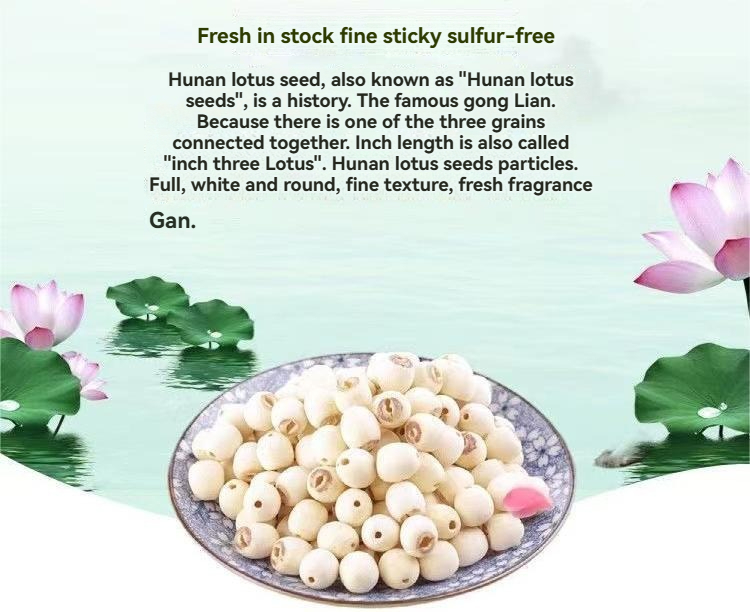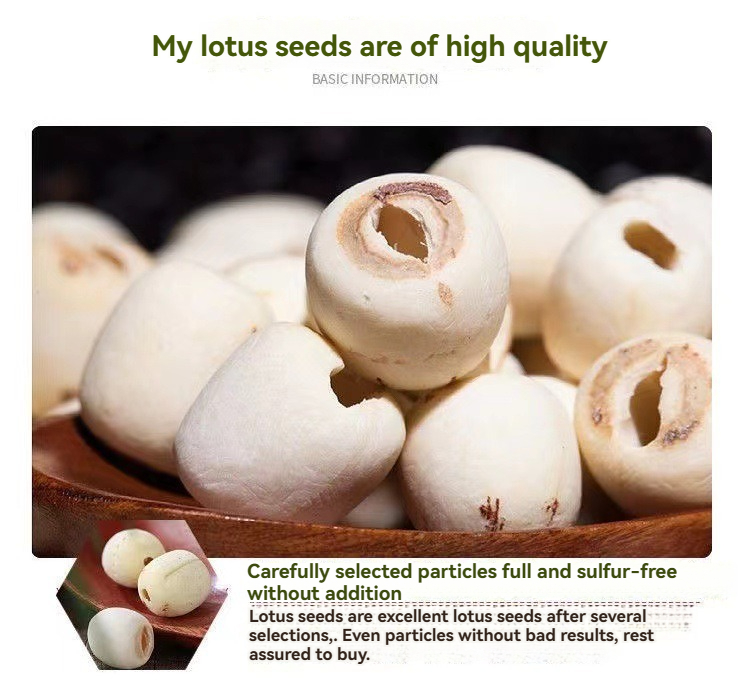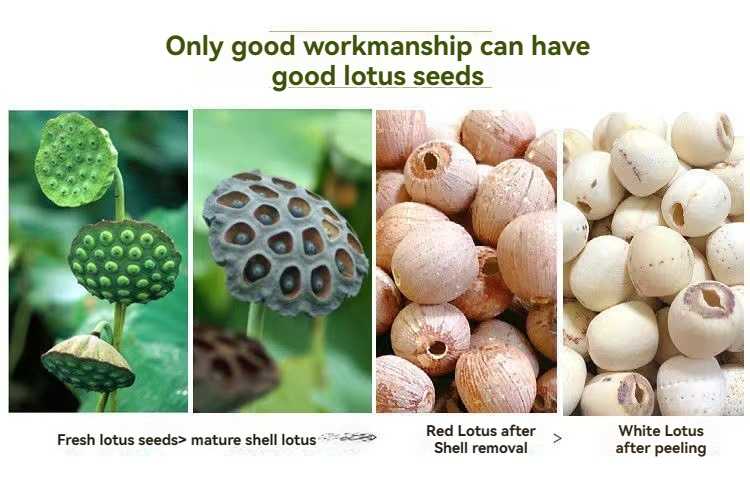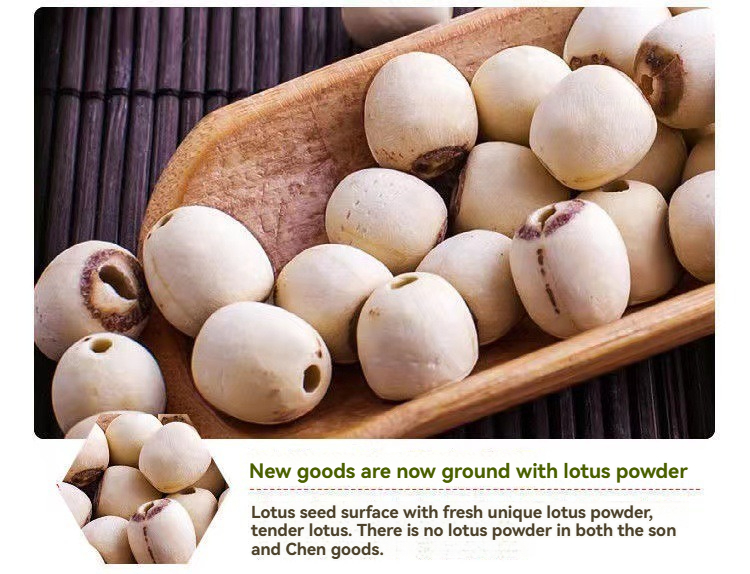







Lotus seeds ( Liánzǐ), the dried mature seeds of the Nelumbo nucifera plant, are sweet, astringent, and neutral in nature. They enter the spleen, kidney, and heart meridians , offering benefits such as tonifying the spleen to stop diarrhea, consolidating kidney essence, and nourishing the heart to calm the spirit. As both a food and medicinal herb, they are a cornerstone of Traditional Chinese Medicine (TCM) tonification.
I. Key Benefits and Mechanisms
Tonifies the Spleen and Arrests Diarrhea
Mechanism: Rich in starch and raffinose, they gently regulate digestion. Ideal for spleen deficiency (pí xū) with poor appetite or chronic loose stools.
Strengthens the Kidneys and Secures Essence
Mechanism: Targets kidney qi instability, addressing nocturnal emissions (yíjīng), frequent urination, or lower back weakness. Often paired with Euryale seeds (Qiànshí) or Chinese yam (Shānyào).
Calms the Heart and Spirit
Mechanism: The green plumule (Liánzǐxīn) contains alkaloids that clear heart fire (qīng xīn huǒ) and ease anxiety/insomnia. Used with Poria (Fúlíng) or sour jujube seeds (Suānzǎorén) for restless minds.
Antioxidant and Anti-Aging Effects
Mechanism: Polyphenols and flavonoids combat free radicals. Proteins, B vitamins, and minerals boost immunity and slow cellular aging.
II. Ideal For
Spleen deficiency with diarrhea: Chronic loose stools, post-meal bloating.
Kidney qi insufficiency: Nocturnal emissions, urinary frequency, weak knees.
Insomnia due to heart fire: Restlessness, vivid dreams.
Convalescents or the elderly: General debility recovery.
III. Precautions
1. Contraindications
Avoid if: Constipated, bloated (its astringency worsens symptoms), or experiencing external heat/fever (wài gǎn fārè) or internal damp-heat (shī rè nèi shèng).
2. Usage Tips
Remove the plumule for spleen-stomach deficiency with cold (pí wèi xū hán); retain it for enhanced calming effects.
Cook thoroughly (e.g., congee, soups, steaming)—never consume raw to prevent digestive upset.
3. Synergistic Pairings
Lotus seeds + Chinese yam + Red dates: Boosts spleen qi.
Lotus seeds + Tremella fungus + Goji berries: Nourishes yin, ideal for dry autumn/winter seasons.
Dosage Guidance
Daily use: 10–15g (≈1 tbsp), 2–3 times weekly.
Excess consumption may impair digestion.
For therapeutic use: Consult a TCM practitioner for pattern-specific formulations.
Lotus seeds harmonize nourishment with gentle action—integrate them wisely for holistic vitality.